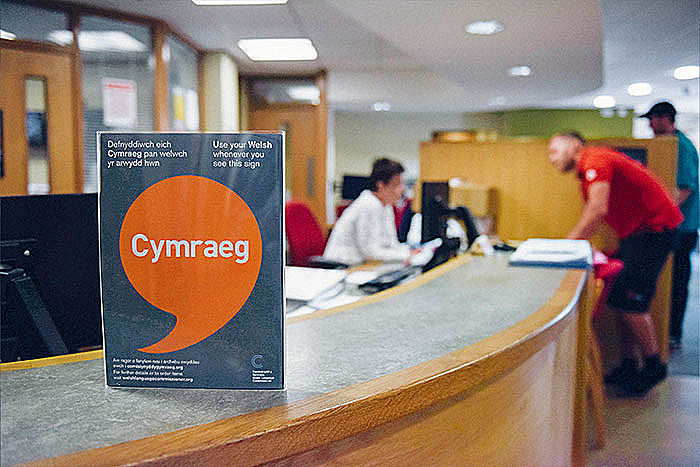
Language laws exist in Wales to give people the right to use the Welsh language and for it to be treated equally. These laws set in stone the principle that the Welsh language should never be treated less favourably than English.
But this has not always been the case. As many know, the Welsh language has suffered severely from oppression. It went from being spoken by over 90% of the population to being a minority language within about a century.
The Laws in Wales Acts 1535–1542 made speaking Welsh in court illegal (in a country at a time where most people only spoke Welsh). Welsh was not a valid form of pleading in court until the Welsh Courts Act in 1942.
During the 18th century and the industrial revolution, it was reported that workers speaking Welsh down the mines could lose their jobs, the only family income in most cases. Therefore speaking Welsh wasn’t passed down to new generations in fear that it would be detrimental to future careers and work opportunities.
The Welsh Not was a practice that started around 1840-1940, where school children were actually punished for speaking Welsh in school. If caught, they would wear a wooden plaque with the letters “WN”. Then, whoever was wearing this at the end of the day would be caned by the headmaster. There are reports of this still happening up until the 1940s!
With falling numbers and a lack of support against an ever-dominant English language, tensions started to boil over from the 1950s onwards. Protests erupted as Wales demanded basic linguistic rights, fuelled by political events such as the drowning of a small village (Capel Celyn, referred to as Tryweryn) to create a water reservoir for Liverpool. The protesting eventually led to change. The Welsh language campaign group (Cymdeithas yr Iaith) was established, a Welsh language TV channel (S4C) was established and the Welsh language was included on road signs.
Eventually, the pressure led to official language laws being implemented in Wales. Not only to support the Welsh language but to give people the basic right to use the Welsh language in Wales. Two main laws have passed laying the foundations of Welsh language rights:
The Welsh Language Act (1993) was an act that officially put the Welsh language on an equal footing with the English language within Wales. It obliged all public sector organisations who provided a service to the public, to do so in both Welsh and English.
The Welsh Language Measure (2011) set out that the Welsh language should not be treated less favourably than English. It provided provision regarding interference with the freedom to use the Welsh language. This includes anyone ordering an individual to not communicate with another individual in Welsh, and someone threatening Welsh to be a disadvantage when being used with another person. | 